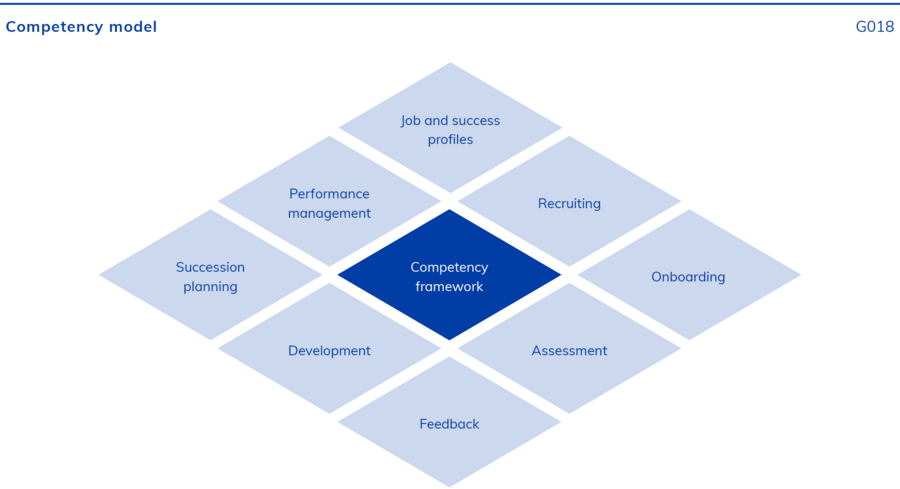Learning and Development
Success factor for business activities
NORMA Group considers itself a learning organization, and therefore pursues the goal of continuous development. This is important, among other things, because the company operates in a very dynamic environment with constantly changing requirements. Trends such as digitalization, networking, flexibility, and sustainability are particularly relevant.
At the core of NORMA Group’s business model is the ability to adapt quickly and flexibly to changing customer requirements as well as economic and social conditions. The targeted training and development of employees, and the utilization of their potential are the decisive keys to innovative strength and corporate success. The aim is also to recruit as many skilled workers as possible from the company’s own junior staff and thus become more independent of the external labor market.
As a responsible employer, NORMA Group wants to offer its employees a supportive work environment that includes opportunities for further development. At the same time, today’s working world calls for skills that are in line with the changes resulting from global megatrends. Thus, training and development not only serves NORMA Group as a company, but also the long-term perspectives of its employees.
Ensuring the development of employees through training
In order to meet the requirements for the training and development of its employees, NORMA Group has firmly anchored the topic in its human resources strategy. The strategy is implemented at the regional level by Learning & Development managers and locally by the HR business partners. The focus of the activities is on designing and offering globally implementable development processes and programs that are aligned with NORMA Group’s corporate values and growth objectives. In order to specifically promote learning in the workplace and the individual development paths of employees, both direct supervisors and internal mentors as well as external coaches, are available. In addition, various local and regional methods for personnel development were coordinated in a global context. This ensures that all NORMA Group employees worldwide have access to the same talent development program.

NORMA Group has set itself the goal of ensuring that all full-time employees receive an average of at least 30 hours of training per year.7 Training includes both internal and external courses, as well as workshops and focuses
7 The target of 30 training hours per employee is based on full-time employment. The target training hours are reduced accordingly in the case of part-time employment (for example, employment relationships with 50% have a target of 15 training hours)
not only on task-related (operational) training, but also on general training designed to prepare employees for individual, future challenges. In addition, International Short-Term Assignments (up to three months) are also included in the calculation of training hours. Employees received an average of 29.1 training hours in 2023 (2022: 38.7). 4 GRAPHIC G017: DEVELOPMENT OF TRAINING HOURS IN HOURS PER EMPLOYEE In the fiscal year 2022, regular training courses were held for all employees at Group level, resulting in a higher average number of training hours in 2022.
By continuously expanding its range of online training courses, NORMA Group is also taking account of the growing trend towards mobile working. The current integration of the training offering into the Human Capital Management System (SAP Success Factors) enables NORMA Group to offer its employees an online platform on which standard training courses are offered and on which employees can also receive additional training according to their individual needs. NORMA Group ensures the achievement of the training target by means of regular internal reporting on participation rates and feedback.

Targeted acquisition of competencies
Employee training is most effective when it aligns with the demands of the working environment. To ensure this, NORMA Group’s approach is principally demand-oriented, based on bottom-up departmental reporting.
In addition, the competency model, which was developed specifically for NORMA Group, defines the skills that are important to the company, based on workshops and with the participation of employees in all regions. The competency model is integrated systematically into the global and local HR structures ( GRAPHIC G018: COMPETENCY MODEL). For example, managers have been trained in how to further develop their employees using the competency model, and methods have been introduced to ensure that the selection of new employees is carried out along the framework of the skills that are of importance to NORMA Group.
Numerous training opportunities for career starters
In addition to part-time courses of study in industrial engineering, mechanical engineering, mechatronics and business administration, NORMA Group also offers internships for students in all departments and regions. In addition, NORMA Group offers apprenticeships for young people in various technical and commercial fields every year.
International exchange
In a globalized world, and at an international Company such as NORMA Group, cross-border exchange, network building and intercultural skills are crucial for success on both a personal level and corporate level DIVERSITY AND EQUALITY OPPORTUNITIES. With its international assignment programs, NORMA Group therefore offers its employees the opportunity to expand their experience and skills abroad. The programs distinguish between “Bubble Assignments” (up to three months) and “long-term assignments” (more than three months). Skilled employees and managers who participate in these initiatives bring with them specialist knowledge and experience from other places while at the same time benefiting from the expertise of their local colleagues. Exchanges can take place within a country or internationally between countries and regions.
Legend
These contents are part of the Non-financial Group Report and were subject to a separate limited assurance examination.